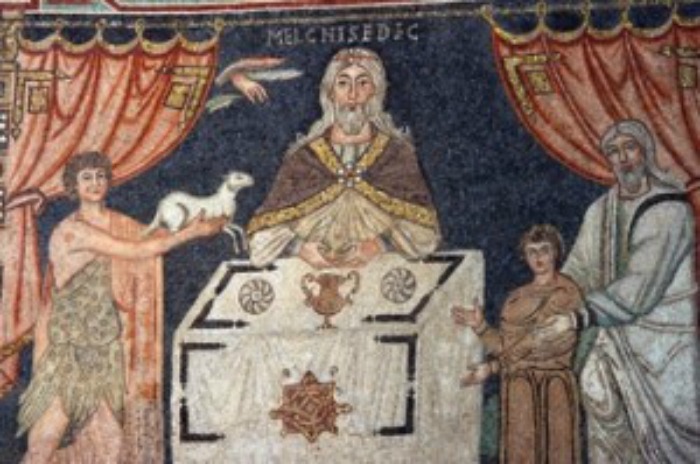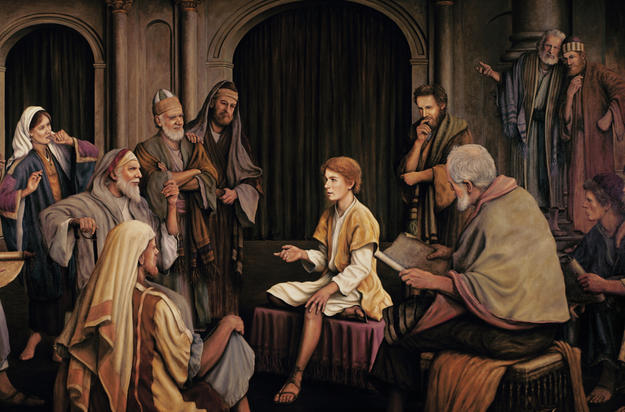Question
Gramps,
Jesus Christ is our spirit brother and a member of the Godhead. We chose to come to Earth to obtain a physical body in order to progress toward perfection. However, Christ was the God of the old testament as a spirit. We needed to come to Earth to progress towards godhead, but Christ achieved this before his mortal life. The Holy Ghost is also a spirit and a god. If mortal life is necessary to become like the Father, how was Christ able to become a God before his mortal life?
David
Answer
David,
In the theology of The Church of Jesus Christ of Latter-day Saints, the concept of becoming like God is not merely an aspiration but a divine potential inherent in every human being. This belief raises profound questions: If mortal life is essential for spiritual growth and progression toward godhood, how was Jesus Christ able to attain His divine status before experiencing mortality?
Latter-day Saint belief holds that Jesus Christ existed as Jehovah before His mortal life. Joseph Fielding Smith taught that Christ was the firstborn spirit in the pre-mortal realm, participating in the creation of worlds under the direction of God the Father (Smith, The Restored Gospel and the Book of Genesis). In this role, Jesus served as the lawgiver and covenant-maker with Israel, a theme that is echoed throughout the scriptures, including the Book of Mormon (3 Nephi 15:5). This pre-mortal existence establishes the foundation for understanding His divine nature; as the Only Begotten Son of God, Christ was uniquely positioned to fulfill the role of Savior, having already demonstrated His divine authority and purpose before His mortal ministry began.
Although Jesus Christ was divine, His mortal life was essential for fulfilling His mission as the Savior. Latter-day Saints believe that His experiences were crucial for the Atonement, allowing Him to empathize with human suffering and serve as the perfect Redeemer (Hebrews 2:10). Born under humble circumstances, His divine identity was often obscured; however, His miracles and teachings throughout His ministry confirmed His Godhood (John 1:14).
The scriptures affirm that Christ’s suffering in the Garden of Gethsemane and His crucifixion were integral to the Atonement, enabling Him to overcome death and sin for all humanity. This dual nature—divine and mortal—allowed Jesus to fulfill prophecies and exemplify the perfect life required for the Atonement, reaffirming His role as Redeemer (3 Nephi 27:13-14).
A cornerstone of Latter-day Saint theology is the doctrine of deification, encapsulated in the couplet articulated by President Lorenzo Snow: “As man now is, God once was; as God now is, man may be” (Teachings of the Prophet Joseph Smith, p. 345). This belief emphasizes the potential for all individuals to become like God through obedience, faithfulness, and the grace of Christ. Latter-day Saints believe that God the Father was once a man who progressed to divinity, inviting His children to pursue a similar path of growth and exaltation (D&C 76:58).
Such teachings are supported by scriptural references, including Romans 8:16-17, which describes believers as heirs of God and joint heirs with Christ. This perspective fosters a relationship between God and His children, centered on love, growth, and divine potential.
In Latter-day Saint belief, agency is a fundamental principle that underscores the purpose of mortal life. Joseph Smith taught that individuals possess the freedom to choose to follow God’s commandments and thereby progress toward godhood (Alma 42:31). This agency was exercised even in pre-mortal existence, where spirits chose to accept or reject God’s plan.
Mortal life serves as a critical period for spiritual growth, where experiences and choices prepare individuals for eternal life. Joseph Smith’s teachings highlight that the purpose of mortality is to gain experience, learn, and ultimately return to live with God. Through the Atonement of Christ, all humanity is offered the opportunity for eternal life, emphasizing the significance of Christ’s role in God’s plan (D&C 29:1).
The unique divinity of Jesus Christ is further emphasized in His position within the Godhead. Latter-day Saints view God the Father, Jesus Christ, and the Holy Ghost as three distinct beings united in purpose, not in substance. Elder Jeffrey R. Holland articulated that while Latter-day Saints affirm the unity of purpose among the Godhead, they do not subscribe to traditional Christian doctrines of the Trinity (Holland, “The Only True God and Jesus Christ Whom He Hath Sent,” Ensign, Nov 2007).
This distinction is vital in understanding the nature of Christ’s divinity. He is worshiped not only for His role as the Savior but also for His unique identity as the Only Begotten Son of God. The Book of Mormon reinforces this notion, affirming that Jesus is both the Creator and the Redeemer, drawing on His divine authority to fulfill the plan of salvation for all humanity (Mosiah 3:8).
In summary, Latter-day Saint theology presents a cohesive understanding of Jesus Christ’s divinity and the significance of mortal life in the journey toward becoming like God. Jesus Christ, as Jehovah, existed as a divine being before His mortal life, fulfilling His role as the Savior through His experiences on earth. The principles of deification, agency, and the Atonement are interwoven into the fabric of Latter-day Saint belief, emphasizing the potential for all individuals to aspire to divine attributes. Ultimately, the relationship between God and His children is one of love and growth, inviting humanity to follow the path exemplified by Jesus Christ.
Gramps







